Vital Tips for Coping with Tooth Pain


Tooth Pain Causes
Understanding the underlying causes of tooth pain is crucial for determining how to deal with tooth pain effectively. Toothaches can arise from various dental issues, infections and decay, as well as trauma and injury.
Dental Issues
Toothaches can be caused by cavities, decay, erosion, or an infection. Identifying the root cause is vital for determining the best approach to treatment. For example, untreated cavities can progress to more severe forms of decay, leading to more significant discomfort and complications. According to Perkins Dental Baltimore, effective diagnosis can often prevent further dental problems.
Dental IssueDescriptionCavitiesHoles in the teeth caused by decayErosionWear and tear on enamel, exposing sensitive areasInfectionsBacterial invasion that can lead to abscessesGum DiseaseInflammation and infection affecting gum tissue
Infections and Decay
Tooth pain often occurs when the nerve within the tooth’s root is irritated. The most common causes include dental infections, decay, injury, or loss of a tooth. Additionally, pain can arise after an extraction. Cavity pain, in particular, typically does not resolve on its own; although discomfort may temporarily lessen, the underlying decay will continue to worsen if left untreated. This can potentially lead to severe dental issues such as infections or abscesses (WebMD) and may also cause challenges in daily activities if not addressed promptly.
CauseSymptomsDental InfectionConsistent pain, swellingTooth DecaySharp pain, sensitivity to temperatureTooth LossSudden, sharp pain
Trauma and Injury
Trauma and injuries to the teeth can cause significant pain. Grinding teeth, also known as bruxism, can wear away enamel and create cracks within the teeth, leading to discomfort. Additionally, wisdom teeth emerging through the gums can result in teething pain, decay, and infection. Knowledge of these causes allows individuals to take preventive measures, such as wearing a mouthguard at night for those who grind their teeth.
Type of TraumaPotential IssuesGrinding TeethEnamel wear, tooth cracksWisdom TeethTeething pain, potential for infection
Understanding these causes of tooth pain empowers individuals with the knowledge to seek appropriate treatments and adopt preventive strategies. For those looking to learn more about maintaining oral health, further topics such as can teeth repair themselves naturally? and how smoking affects your teeth can provide additional insights into dental care.

Home Remedies for Tooth Pain
When dealing with tooth pain, exploring home remedies can offer temporary relief while waiting for professional help. Here are some effective options for managing discomfort at home.
Natural Pain Relievers
Natural pain relievers can be found in common household items. For example, fresh garlic serves as a natural remedy that can relieve toothaches and eliminate bacteria causing infections. Making a paste from garlic and applying it to the affected area can provide significant relief [2].
Another effective natural option is clove oil. Applying clove oil with a gauze pad or cotton ball to the painful tooth can help alleviate discomfort. This oil has been known to provide comfort against toothaches [3].
Natural Pain RelieverApplicationGarlicPaste applied to the toothClove OilApplied with a cotton ball
Saltwater Rinses
Saltwater rinses are an age-old remedy that can disinfect the mouth and relieve throbbing toothaches. Swishing with a mixture of a teaspoon of salt dissolved in a cup of warm water can help dislodge food particles stuck in the gums and reduce inflammation in the affected area [2]. Patients should swish the solution for about 30 seconds to experience beneficial effects [3].
Saltwater Rinse RecipeSteps1 tsp salt + 1 cup warm waterSwish around for 30 seconds
Ice Packs and Cold Compress
Using ice packs can alleviate tooth pain by numbing the affected area. To do this, one can place ice cubes in a plastic bag, wrap it in a cloth, and apply it to the cheek or jaw near the painful tooth. This method helps to reduce swelling and discomfort.
Ice Pack MethodStepsIce cubes in a plastic bagApply to the cheek near the painful area
These home remedies are effective for providing relief from tooth pain. However, it is essential to follow up with a dentist if the pain persists. For more information on managing dental health, consider exploring remedies for can teeth repair themselves naturally? and the effects of how smoking affects your teeth.

Professional Treatments
When managing tooth pain, sometimes home remedies are insufficient. In such cases, professional treatments become crucial. These treatments commonly include dental fillings, root canal therapy, and tooth extraction.
Dental Fillings
If a tooth is damaged due to decay but still has significant structure, a dentist may recommend a dental filling. This treatment involves removing the decayed part of the tooth and filling it with materials like composite resin, amalgam, or glass ionomer. Dental fillings not only restore the tooth's function but also relieve pain caused by the exposure of nerve endings due to decay. According to Cleveland Clinic, fillings are often sufficient to alleviate discomfort from minor to moderate tooth decay.
Material TypeLifespanCost RangeComposite Resin5-7 years$90 - $250Amalgam10-15 years$80 - $140Glass Ionomer5 years$60 - $120
Root Canal Therapy
If decay reaches the pulp (the tooth's inner tissue), root canal therapy may be necessary to save the tooth. During this procedure, the dentist removes the infected pulp, cleans the root canals, and seals them to prevent future infections. This treatment can effectively eliminate tooth pain and allows individuals to keep their natural teeth. When home remedies fail, root canal therapy remains a reliable option for addressing serious toothaches, as noted by Community Access Network.
Tooth Extraction
In cases where the tooth is extremely decayed or damaged, extraction may be the only solution. Once a tooth loses enough strength to support biting and chewing, it risks cracking or splitting. Tooth extraction is typically considered a last resort, used when the integrity of the tooth can no longer be restored through fillings or root canals.
Deciding the best course of action requires consultation with a dental professional, who can evaluate the severity of the condition and recommend appropriate treatment. Understanding how to deal with tooth pain effectively often depends on timely intervention and appropriate restorative practices.
Preventing Tooth Pain
Preventing tooth pain involves implementing effective oral hygiene practices, making mindful dietary choices, and scheduling regular dental checkups. These strategies help maintain optimal oral health and minimize the risk of dental issues.
Oral Hygiene Practices
Maintaining good oral hygiene is crucial for preventing a variety of oral health issues, including tooth pain. Recommended practices include:
A consistent oral care routine, coupled with regular dental visits, can significantly reduce the likelihood of developing painful dental conditions, including untreated oral cancer Healthline. Additionally, applying sealants and fluoride treatments can be beneficial for children's teeth.
Oral Hygiene PracticeRecommended FrequencyBrush teethTwice a dayFloss teethDailyProfessional cleaningsEvery six months
Dietary Considerations
What one eats plays a significant role in dental health. To reduce the risk of cavities and tooth decay, it is advised to:
Early childhood caries (ECC), also known as baby bottle syndrome, can occur when sugar is left on children's teeth, leading to decay Healthline. Identifying early signs, such as white spots near the gum line, allows for timely treatment, preventing further dental issues.
Regular Dental Checkups
Regular dental visits are essential for early detection and treatment of dental problems, including cavities and infections Cleveland Clinic. The American Dental Association recommends scheduling checkups every six months to monitor oral health effectively and address any concerns before they escalate into painful conditions Community Access Network.
By incorporating these preventative measures into their routines, individuals can significantly lower their chances of experiencing tooth pain. For further insight into maintaining dental health, learn more about whether teeth can repair themselves naturally? or understand how smoking affects your teeth.
Consequences of Ignoring Toothache
Tooth pain often serves as a warning signal from the body. Ignoring this symptom can have serious implications, leading to a range of health issues and worsening dental conditions. Below are some critical consequences of leaving toothache untreated.
Decay Progression
When an individual neglects a cavity, this can lead to increased decay within the tooth. The nerve can gradually become exposed to air, food, and water, resulting in a progression of deterioration. This process can trigger more intense pain, including throbbing sensations or localized stings when pressure is applied to the tooth. Cavity pain typically does not resolve on its own; it may temporarily lessen, but the underlying decay continues to worsen if left untreated.
Decay LevelDescriptionPotential OutcomeEarlySmall cavityTreatable with a fillingModerateLarger cavity exposing the nerveRoot canal may be necessaryAdvancedSignificant decayPossible tooth extraction
Infection Spread
Ignoring a toothache can lead to more severe complications, such as infections. A dental abscess can develop, leading to pain and swelling. If the infection spreads through the bloodstream, it poses significant health risks. It can reach major systems in the body, potentially causing dangerous conditions, including infections in the brain [4]. Individuals may face life-threatening situations if infections are not promptly addressed.
Infection TypeDescriptionConsequencesLocalizedAbscess near the toothSwelling and localized painSystemicInfection in the bloodstreamRisk of sepsis or death
Tooth Loss Risks
Another consequence of ignoring tooth pain is the potential loss of the affected tooth. As decay progresses, the tooth may lose strength and stability. Once a tooth has sufficient decay, it can no longer support normal biting forces, leading to it cracking or splitting. Severe damage may result in needing to extract the tooth and possibly replace it with an implant.
Tooth ConditionDescriptionOutcomeMinor DecaySmall filling requiredPreserve the toothSevere DecayExtensive damageTooth extraction needed
By addressing tooth pain promptly, individuals can minimize these risks and maintain their oral health. For comprehensive guidance on managing toothaches, explore further resources such as how to deal with tooth pain. Ignoring a toothache might lead to severe dental or health complications, making early intervention essential.
Immediate Relief Options
When dealing with tooth pain, immediate relief is often sought to alleviate discomfort. Several options are available that can provide temporary relief until professional dental care is accessed. This section highlights effective methods such as over-the-counter medications, hydrogen peroxide rinses, and garlic paste applications.
Over-the-counter Medications
Over-the-counter medications containing a pain reliever can effectively decrease tooth pain temporarily. Common options include ibuprofen and acetaminophen, which are readily available at pharmacies. When using these medications, it is important to swallow them without chewing to avoid further discomfort in the teeth or gums [2].
Medication TypeActive IngredientTypical DosageIbuprofenIbuprofen200-400 mg every 4-6 hoursAcetaminophenAcetaminophen500-1000 mg every 4-6 hours
Hydrogen Peroxide Rinse
A hydrogen peroxide rinse can help with dental issues by destroying bacteria and reducing inflammation in surrounding tissues, including the gums. It is advisable to dilute hydrogen peroxide with water to minimize the risk of overexposure, which can cause irritation.
Hydrogen Peroxide Rinse Preparation
Garlic Paste Application
Fresh garlic can serve as a natural pain reliever for toothaches and has antibacterial properties that can kill bacteria causing infections. To use garlic for tooth pain relief, it can be made into a paste and applied to the affected area to provide immediate comfort.
Garlic Paste Recipe
These methods can provide quick relief from tooth pain. However, they should not replace professional dental treatment when needed. For additional recommendations on coping with dental issues, consider reviewing related articles such as can you reverse tooth decay? and how to handle a knocked-out tooth.
References
[2]:
[3]:
[4]:
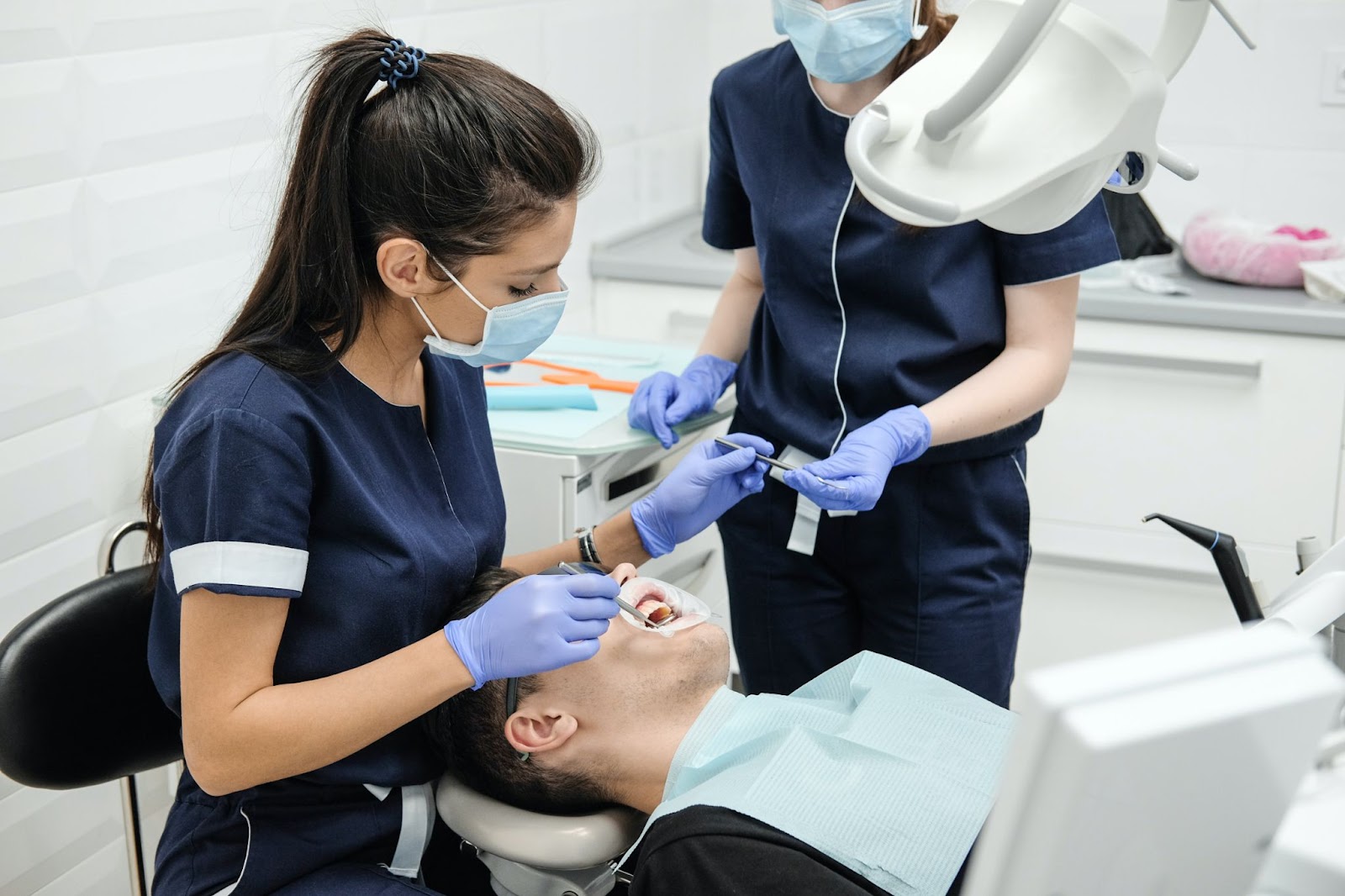





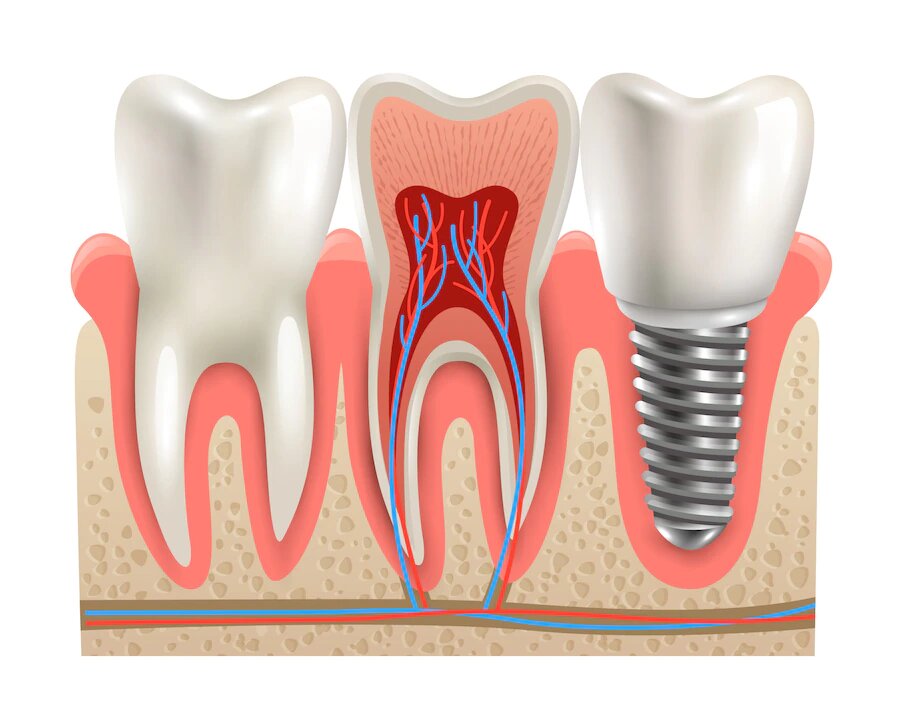










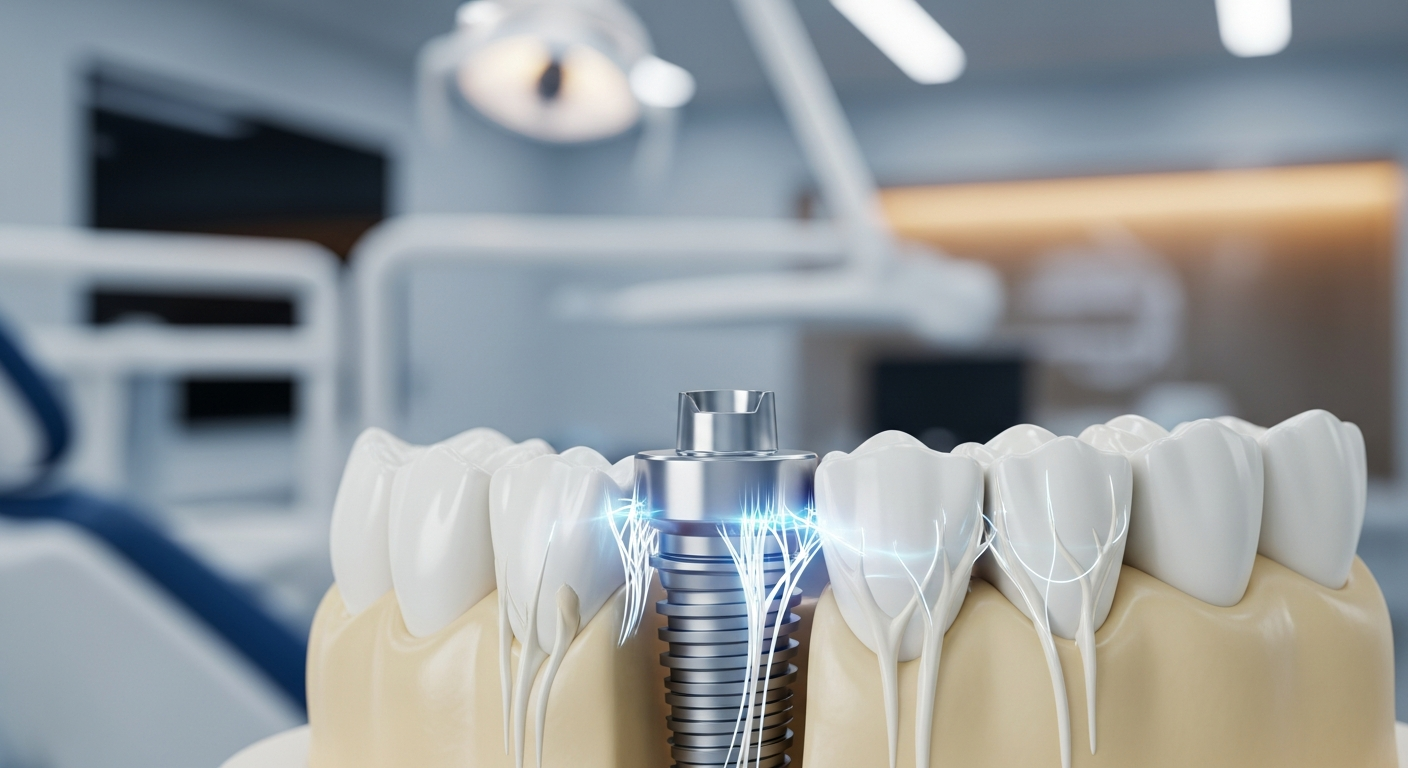
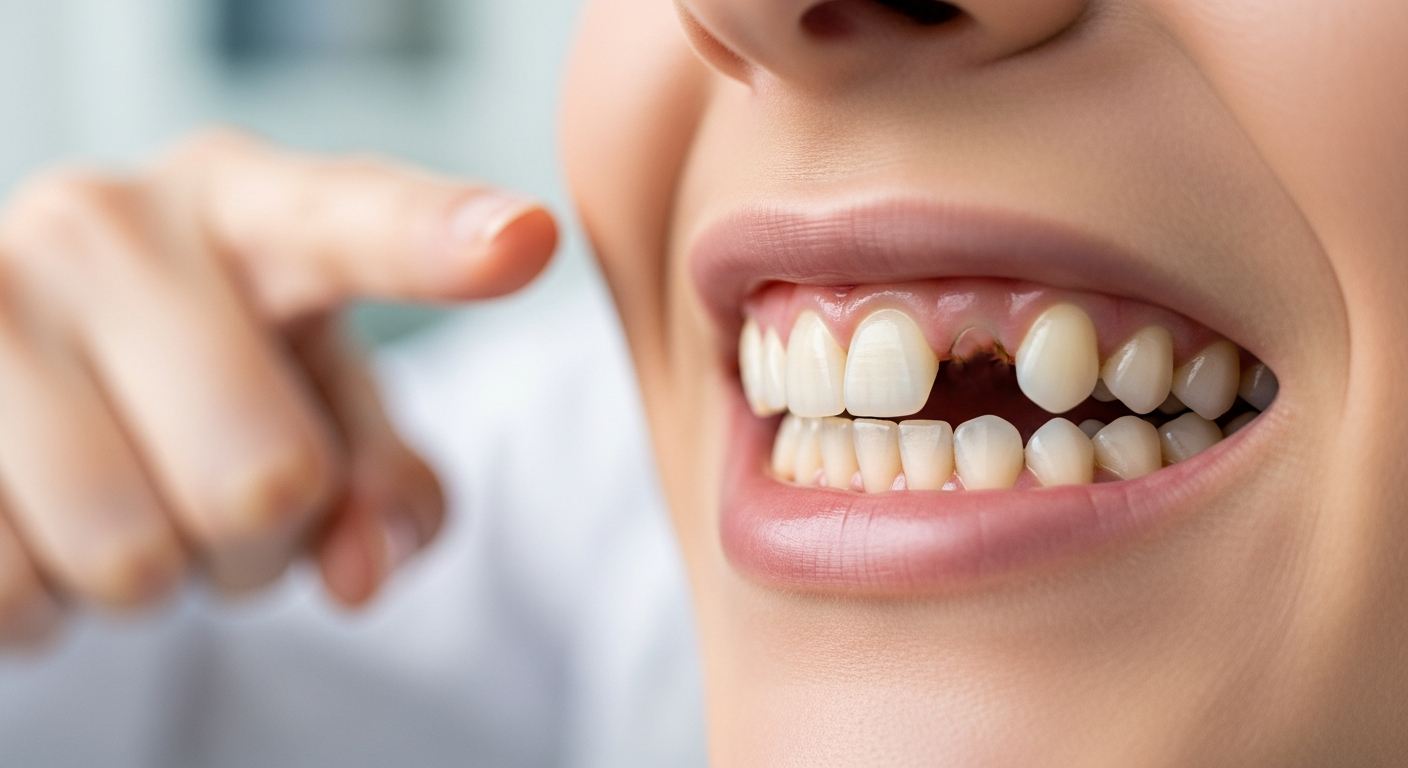





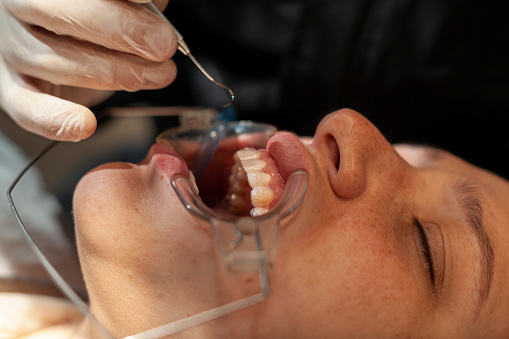

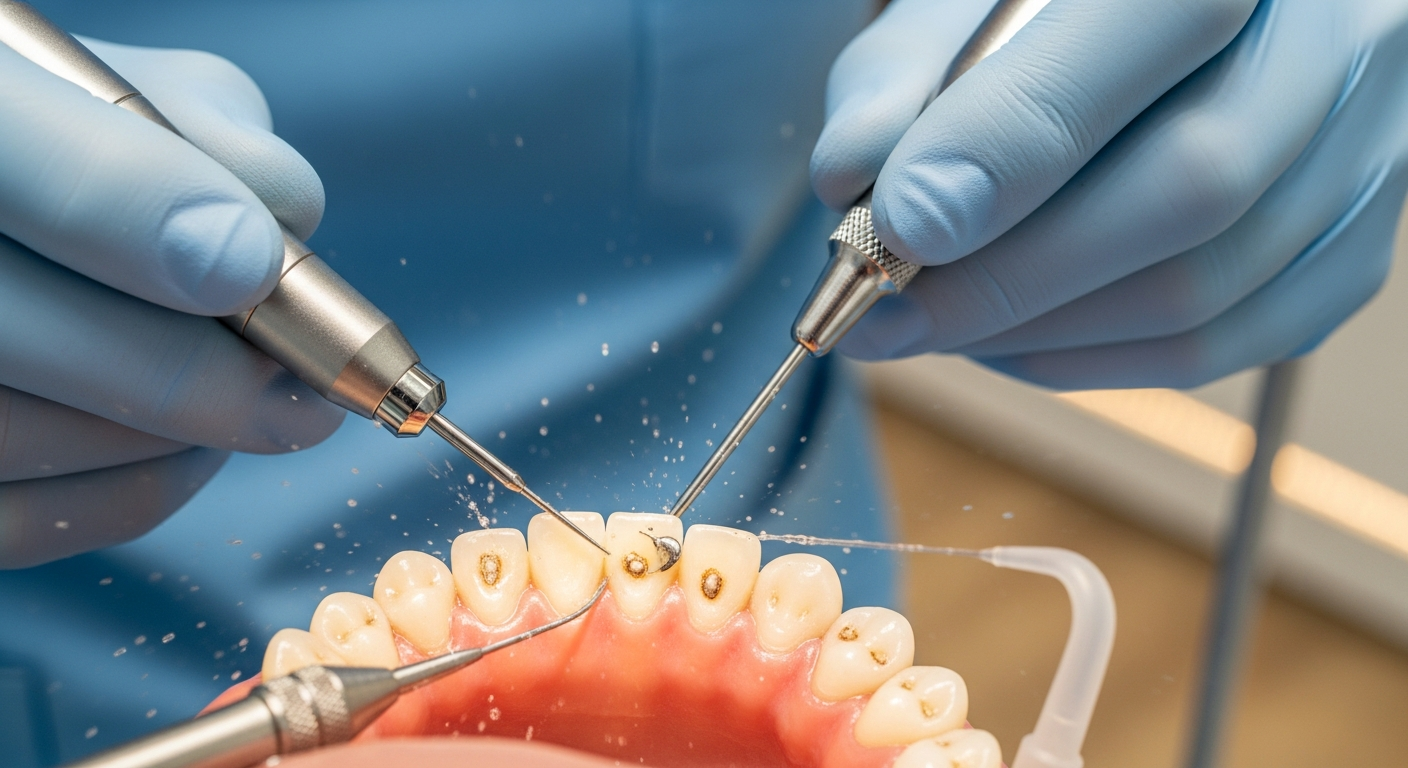


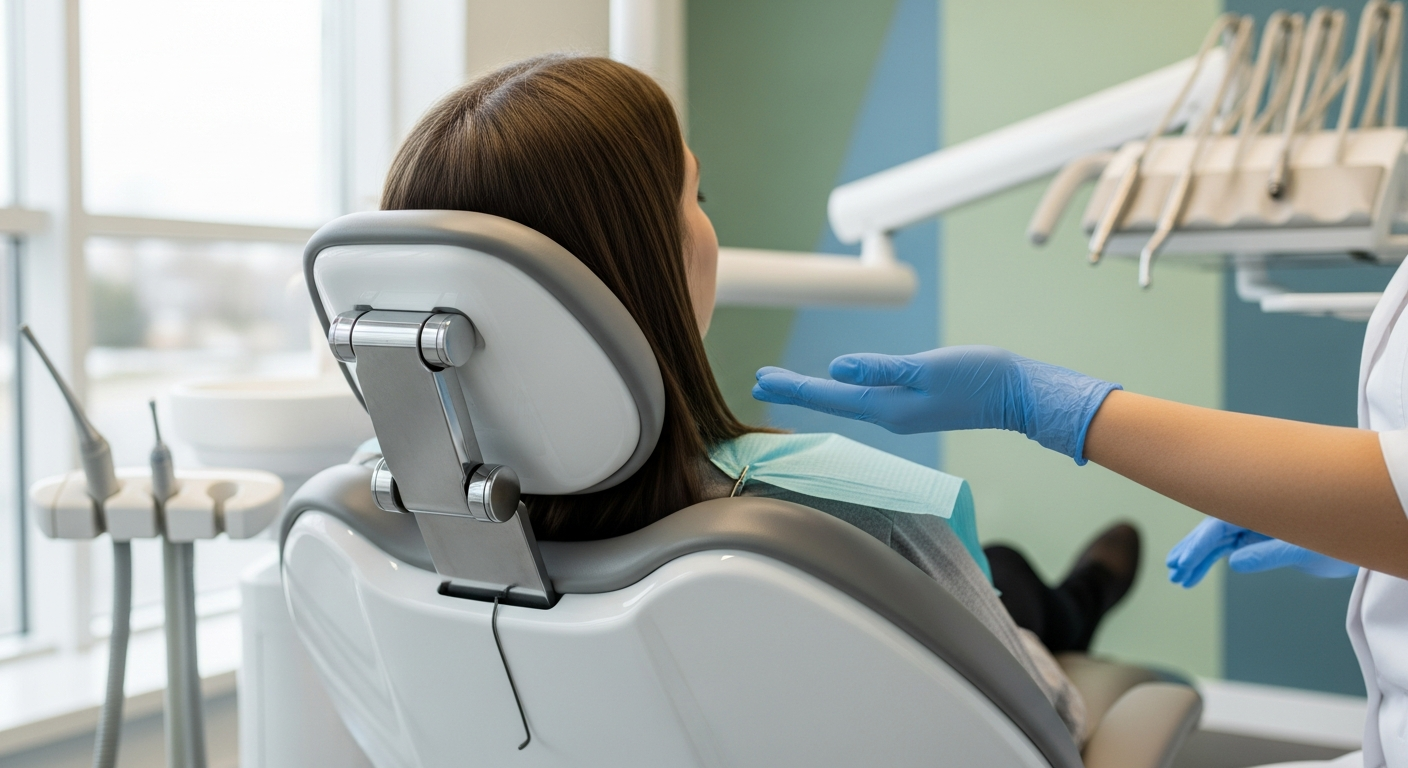


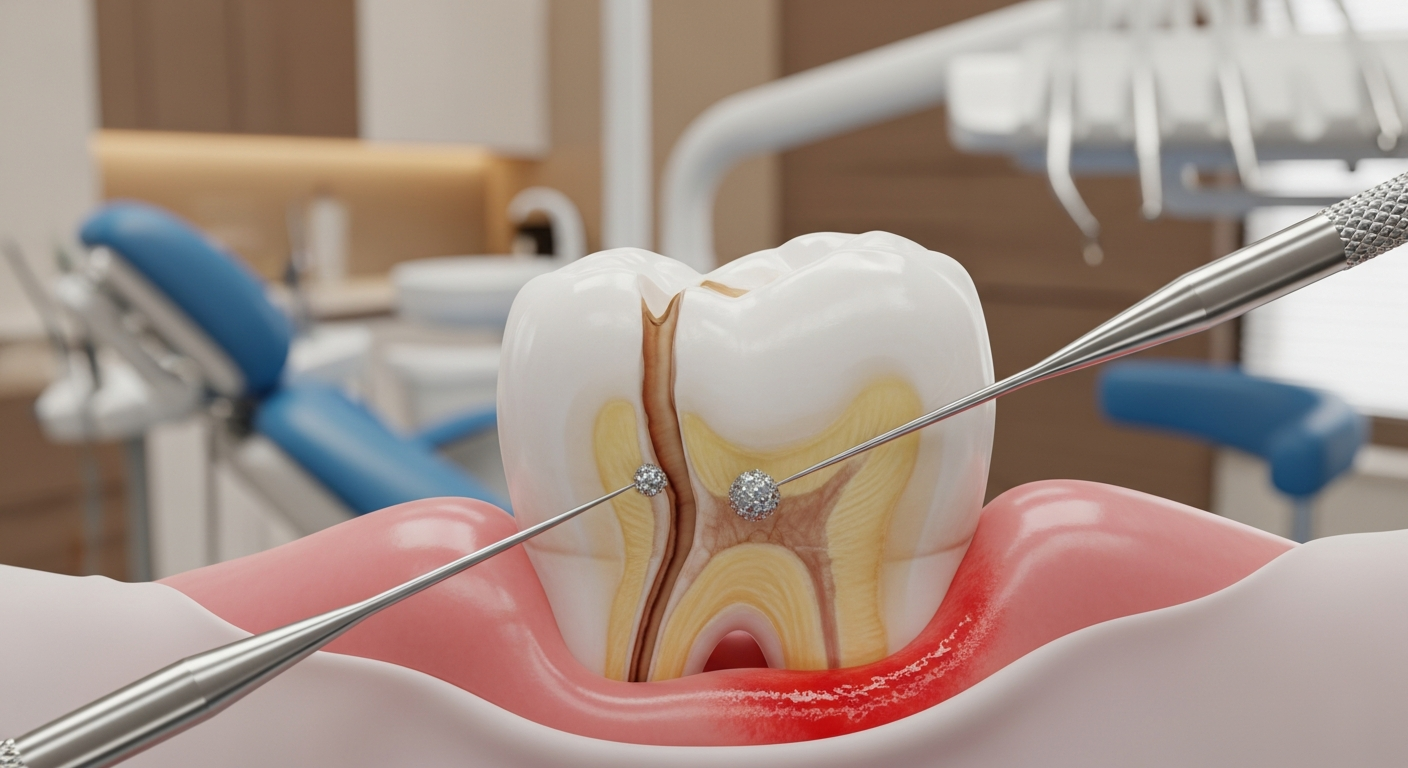




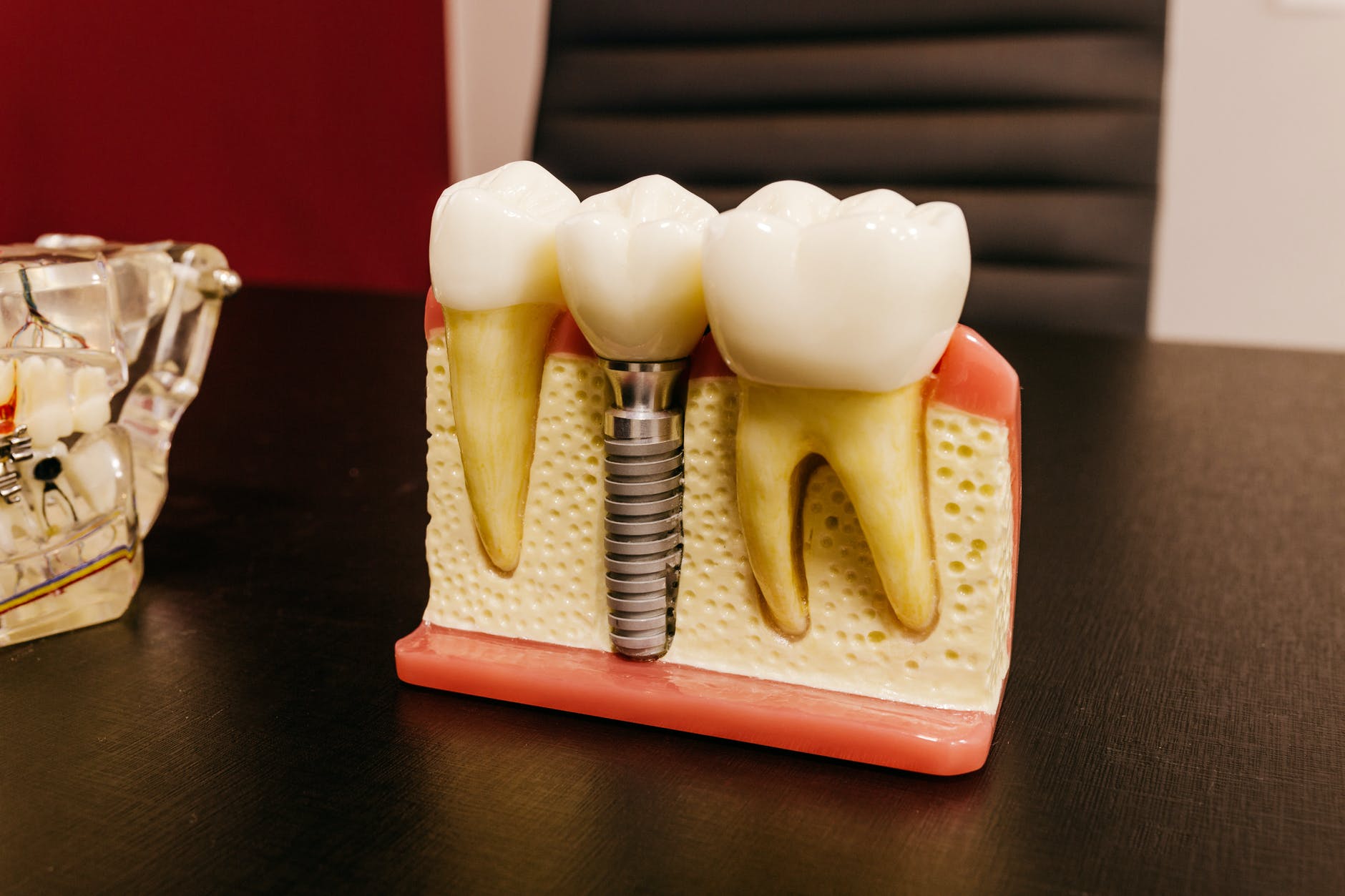


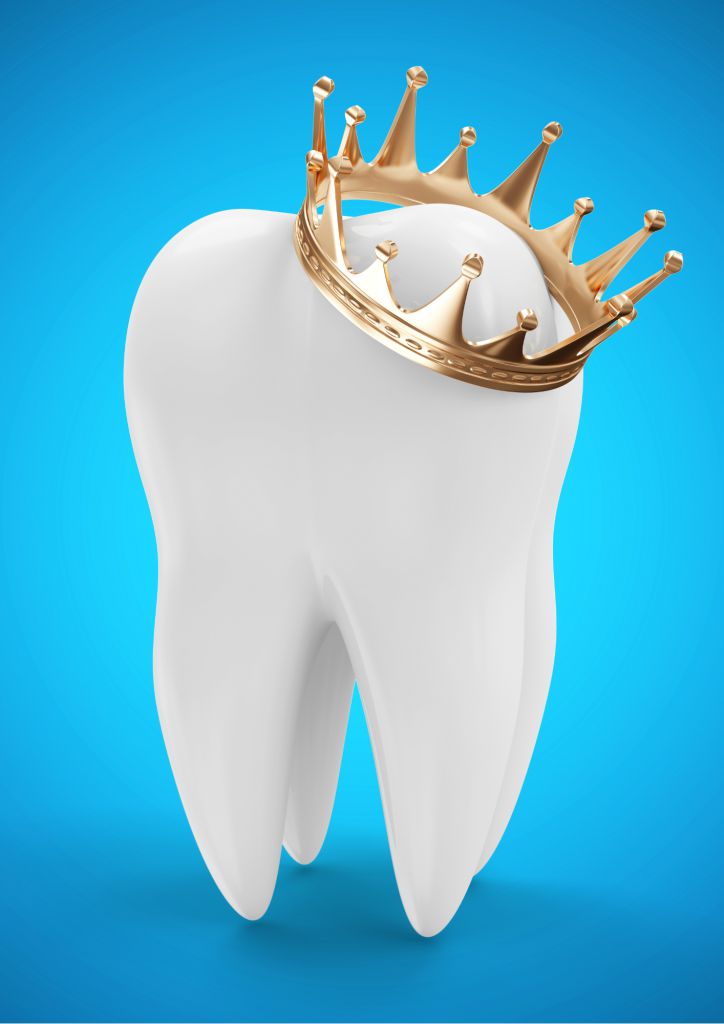







.avif)







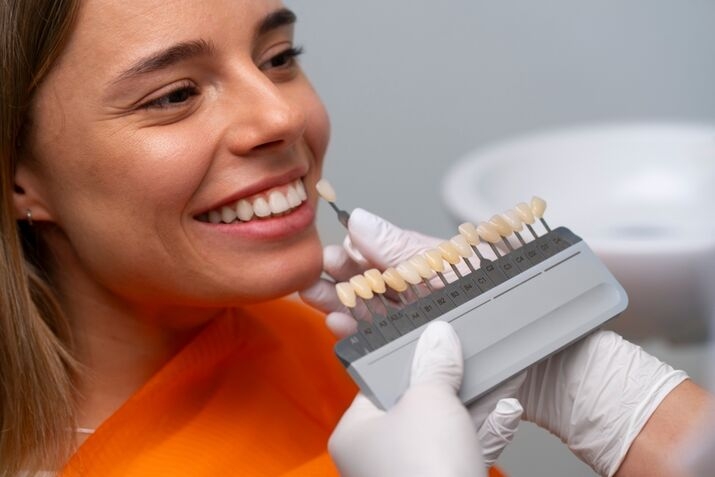
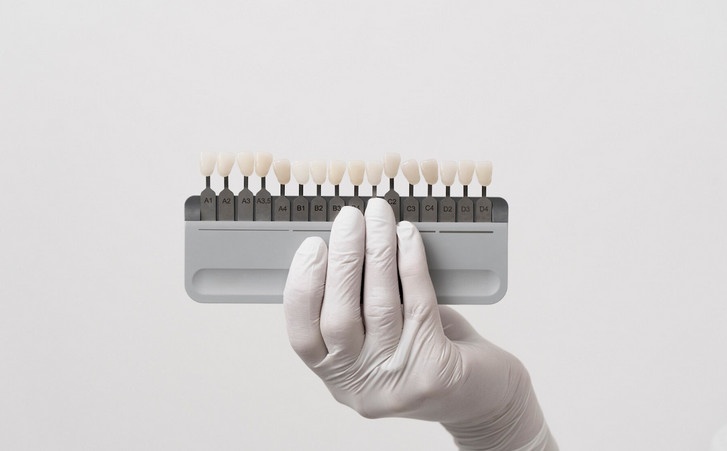

.jpg)


















.avif)

















.jpg)



